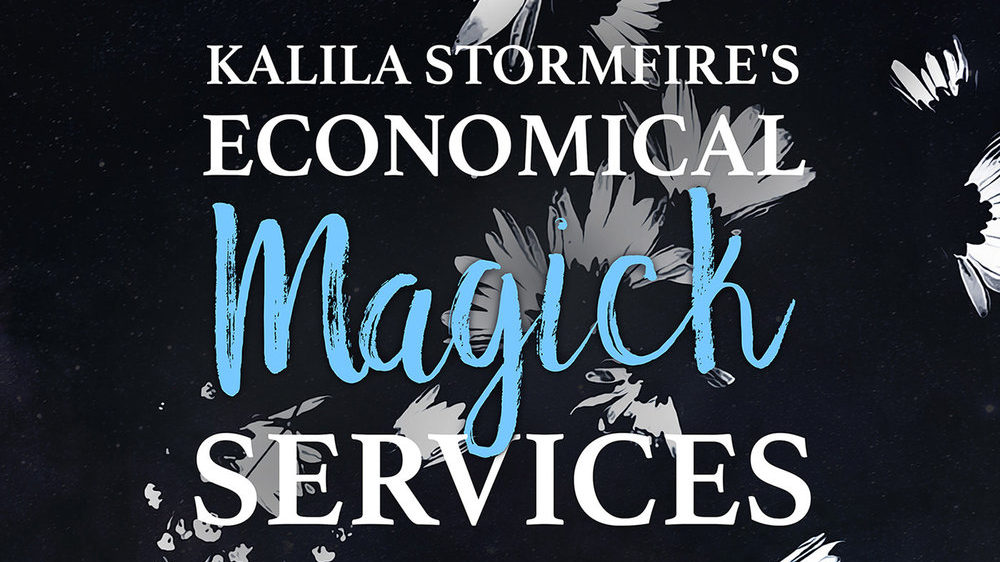I am an incredibly lucky teacher in that I have the distinct pleasure of teaching some students who are just as nerdy as I am. And, because they periodically Google search their teachers, one of them found out about my Women of the World writing project here.
Excited to offer suggestions, my student asked me if I’d ever gotten into any audiodramas. Because I’m old and kind of live in my own niche book world (I have never even finished an audiobook), I responded that I had not. She quickly introduced me to a plethora of options on Spotify, trying to find me one that would be the right amount of spooky for October and also fulfill all of my requirements for the Women of the World series.
Ultimately, she landed on Lisette Alvarez’s Kalila Stormfire’s Economical Magick Services. Upon listening to just the first few episodes, it was clear why my student loved this particular audiodrama. The main character, Kalila—a brown, bisexual witch—interacts with a cast of characters that range widely in culture, color, sexual orientation, and gender identity. Moreover, Kalila uses the medium (pun intended) of magic to talk about real-life difficulties like depression, loneliness, dysphoria, and even the simple, but ever difficult reality of growing up.
In a world that has always favored white, heteronormative content creators, Kalila Stormfire’s Economical Magick Services is a strong move into representation. While Hollywood’s attempt at inclusion has meant creating more films that include people of color (but only one cultural group at a time, please) and maybe venturing into some LGBTQ+ storylines, younger generations are quickly demanding more representation, and faster.
Kalila Stormfire’s Economical Magick Services
A self-described “third-culture kid,” Lisette Alvarez is a queer, Latinx creator who has their hands in many different fields. Alvarez creates website content for several organizations alongside all of their own podcast writing, producing, and acting. After spending their childhood in South America, Europe, and the United States, Alvarez pursued studies in International Affairs, eventually focusing on ways “to combat youth unemployment in South Africa” for their capstone project. Alvarez’s experiences led them to create Kalila Stormfire’s Economical Magick Services, combining their interests in strategy and marketing with a desire to write stories that better reflect a more diverse reality.
Currently in its second season, Kalila Stormfire’s Economickal Magick Services is an audiodrama/podcast that follows the work of Kalila Stormfire, a practicing witch who has recently broken with her coven and is attempting to sustain her own business in the aftermath of that turmoil. Within the first few episodes, Kalila discovers that someone, or something, is purposely sabotaging her new venture, scaring away her clients and even testing the limits of her magical ability. Through her reflections, Kalila reveals the intimate details of her own struggle slowly, allowing the listener to become immersed in the elements of her practice, while also putting together clues from her past.
My students, many of whom are students of color and most of whom identify as neither cis nor het, gravitate toward media that looks and sounds like they do. Because the typical publishing process for books still requires a rather traditional mechanism, books, just like films, still fail to provide this kind of representation to a group of people who are growing more tolerant of each other and less tolerant of . . . well, those who are less tolerant. Creators like Lisette Alvarez, like my students, are not waiting for those typical avenues to become more open. Instead, they are demanding change by creating content to fill the gaps. Delightful in its creativity, Kalila Stormfire’s Economical Magick Services is also moving in its treatment of these gaps, which many consider to be too difficult to discuss. Yet, Alvarez’s discussions never enter into the trite or dramatic. Instead, they read as empathetic, concerned with exploring the depth of the human experience and analyzing what that means for all of us, not just some of us.


Comments are closed.